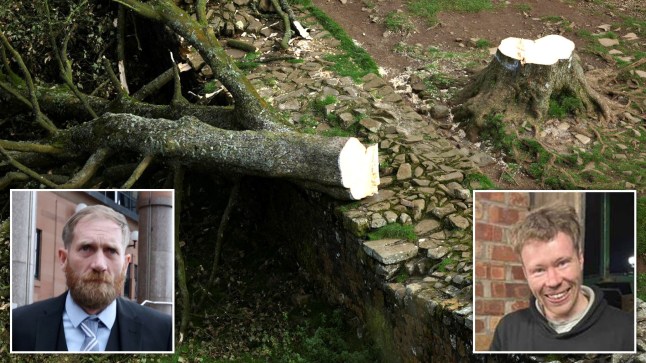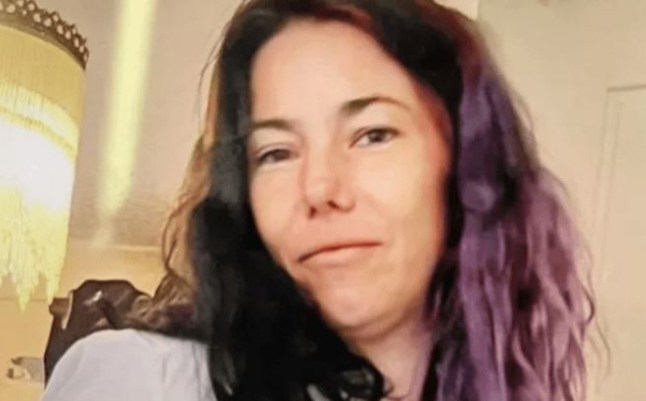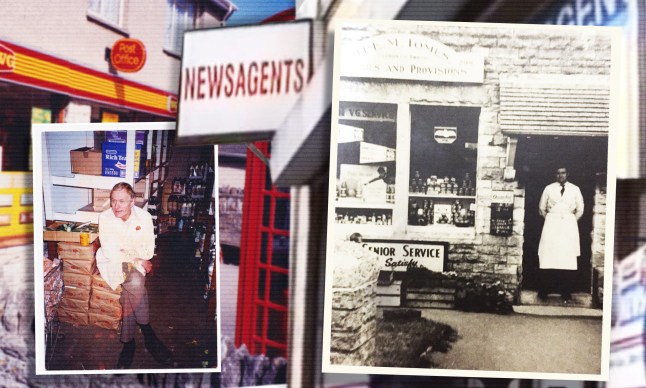
Rationing, shortages and shoplifters: Britain’s corner shops have faced it all in their almost 200-year history.
But behind the ready meal aisles, sweet packets and fizzy drinks, are people who rarely get a mention.
Britain’s corner shop bosses have steered their local communities through world wars, decimalisation, and even a pandemic.
They are now the focus of a major new campaign by Coca-Cola, and Metro has spoken to some of those whose shops go back decades.
In 1908,Keith Tomes’ great-granddad, Harry, opened a single-story corner shop in Swanage, Dorset.
Sign up for all of the latest stories
Start your day informed with Metro’s News Updates newsletter or get Breaking News alerts the moment it happens.
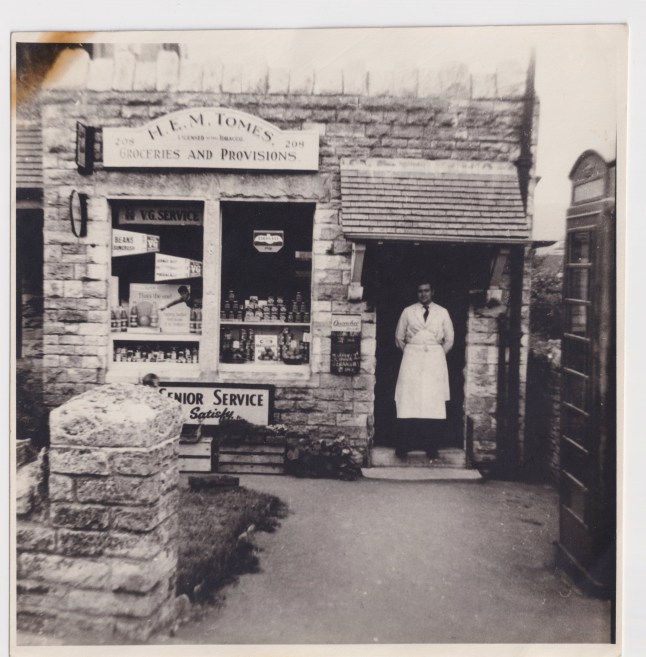
Back then, it sold just daily essentials and vinegar in bulk, with customers bringing their own empty vinegar bottles to refill them.
Keith told Metro: ‘We were recycling before it was trendy.’
The quaint outlet was passed down through the generations, from one Harry Tomes to another, and witnessed history.
Keith’s dad was just a child when tanks rolled past the shop window in preparation for D-Day in 1944.
Back then, the biggest challenge facing shopkeepers was rationing, where they played a vital role in checking coupons carefully and recording what was brought.
Keith, now 63, began working at the store in 1978 as a butcher, just as major supermarkets like Tesco and Sainsbury’s were beginning to dominate the high street.
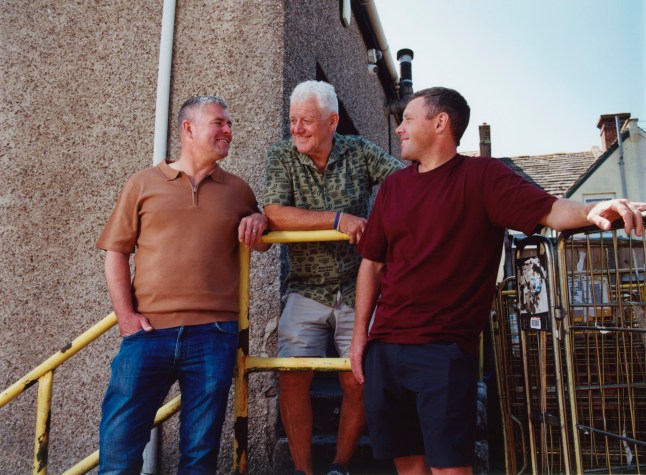
This forced the Tomes’ store to shift away from being the home of the weekly shop to focusing on essentials and fresh produce.
Before the toilet roll rush at the beginning of the Covid pandemic, Keith remembers another rush – for bags of sugar – as prices of the good shot up in 1980.
Keith recalled: ‘All of a sudden, everybody was buying three or four bags of sugar at a time. It probably lasted them for two years.’
His dad, Harry, handed over the reins to him in the early 2000s, but continued to chip in and work there for hours well into his 80s.
Plenty of British icons have passed through its doors, such as June Brown’s Dot Cotton from EastEnders, or Thelma Barlow’s Mavis Wilton from Coronation Street
Just like many corner shops up and down Britain, it continues to be a family affair.
![Television programme : Eastneders. Picture shows: Dot Cotton [JUNE BROWN] Tx: BBC One Thursday 31st January 2008 Dot makes a taped message for Jim explaining her fears for his health and how much he means to her. WARNING: Use of this copyright image is subject to the terms of use of BBC Pictures' BBC Digital Picture Service. In particular, this image may only be published in print for editorial use during the publicity period (the weeks immediately leading up to and including the transmission week of the relevant programme or event and three review weeks following) for the purpose of publicising the programme, person or service pictured and provided the BBC and the copyright holder in the caption are credited. Any use of this image on the internet and other online communication services will require a separate prior agreement with BBC Pictures. For any other purpose whatsoever, including advertising and commercial prior written approval from the copyright holder will be required.](https://beinsmartside.com/wp-content/uploads/2025/08/AD_904616-5bbc.jpg)
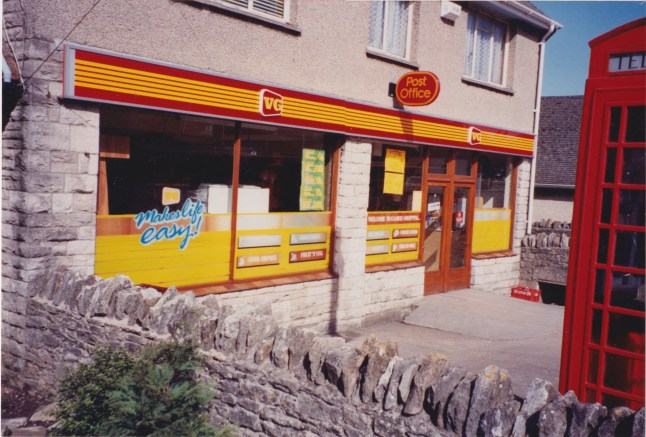
His sister, niece and two sons, Chris and Darren, both work at the shop, which now belongs to the buying group Costcutter.
But many elderly locals still refer to it by its old name – ‘Harry’s’
That is all down to the shop’s crucial role at the heart of the Swanage community.
Keith said: ‘We are part of this town and the town’s really part of our lives.
‘We are a local family, and people know us. My son is the deputy mayor of Swanage. We’re all members of the sailing club, tennis club and the rugby club.’
Over 200 miles away in Pontefract, West Yorkshire, it was Bobby Singh’s community that pulled together and supported him when he was left with immense responsibility at just 14.
His dad, Jasbir, had opened the family shop in the town in 1984.
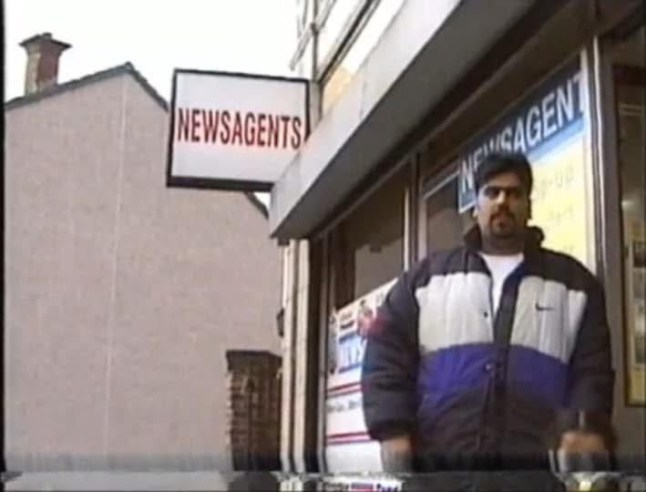
Back then, the aisles were Bobby’s playground, and he loved being there as his dad ran the show.
But in 1991, his dad died, leaving the teenager to take over the family business alongside his mother Balbir.
It was the Pontefract community that came together and helped them rebuild.
Bobby told Metro: ‘I was down and lost. But I remember the warmth from our regulars.
‘They would come in and say “Don’t worry, Bobby, if there’s any way we can help, give us a shout.” That meant so much.
‘The community we have built is one of our strongest assets.’
BB Superstore is also important to locals because it is home to a Post Office.
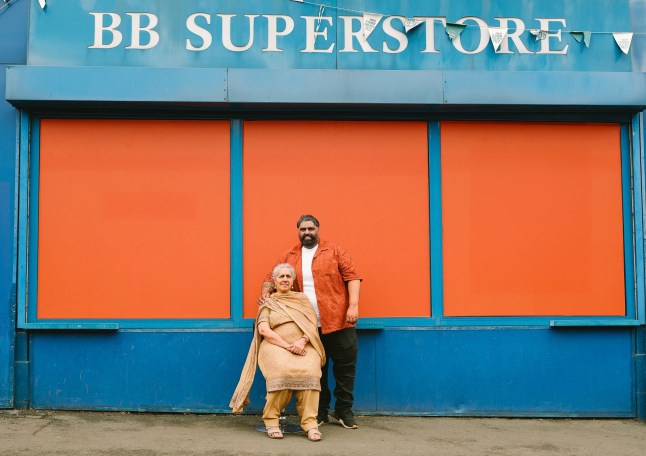
A history of the corner shop
These much-loved additions to the English high street date back centuries.
Britain was dubbed the ‘a nation of shopkeepers’ as far back as 1776 by Scottish economist/philosopher Adam Smith.
However, the corner shop we are familiar with dates more to the Victorian era in the 1800s.
As cities grew due to industrialisation, there was a boom in small, family-run grocery shops and general provision stores.
They got their name simply because they were often placed on street corners for more visibility.
If they were on two roads, they would have access to more passing trade, too.
Corner shops became a cultural phenomenon with the advent of TV, most famously with the sitcom Open All Hours.
It aired for four series between 1976 and 1985, capturing the humour and charm of convenience store communities.
Much would also be made of Prime Minister Margaret Thatcher’s background as a grocer’s daughter.
Since the pandemic, the high street has been battling a wave of closures. One in 10 shops is now vacant nationally, and over 2,000 shops shut in the first half of 2024 alone.
However, convenience stores have defied that trend.
There are currently more than 46,000 convenience stores in the UK, and they generate a whopping £40.3 billion in sales, which is one-fifth of the total groceries market.
Post Offices are seen as valuable institutions which foster social interaction, and Bobby says he sees that in his shop day in and out.
He said: ‘It is a great asset for our store. Whether that’s paying bills or doing banking. They provide a real asset to our community.’
Back when Bobby and his mum took over, he remembers clothes pegs being one of the most popular items people would buy.
But as washing lines were replaced dryers, clothes pegs disappeared too.
Now it is all about data analytics to monitor shop performance and having ‘a finger on the pulse’ of what is selling and how well.
This means BB Superstore and Post Office has attracted local celebrities as well, including former pro boxer Johnny Nelson.
As a boxing fan, Bobby could not believe his eyes when the cruiserweight champion walked in, and the pair had a great chat.
Reporter’s opinion – the nostalgia of the corner shop
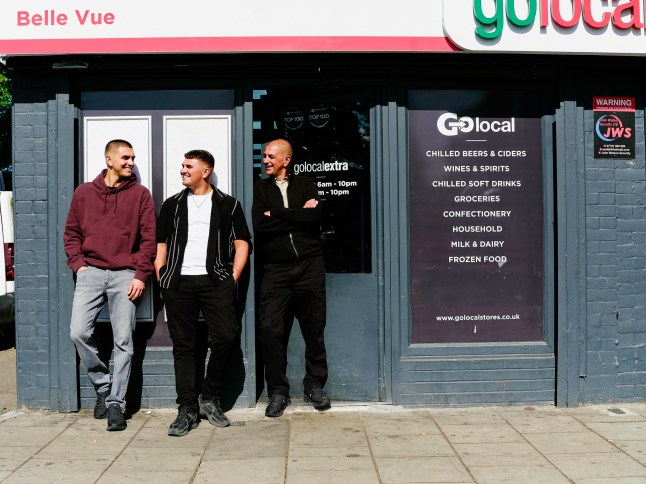
When I went back to visit my university city of Durham, one of the first places I rushed to see was my local corner shop Dunelm.
The two-aisled store was not where I studied, partied or even made memories during my degree.
But there is a quiet nostalgia packed into the small shops we visit on a daily basis.
Dunelm was where I’d rush to buy my dinner before an exciting night with friends, or where I’d buy some electrolytes to ease a hangover.
It’s where I’d buy some chocolate for a date, or to console a heartbroken friend.
I can’t say I remember the shop assistant’s name, but I sure remember our smiles at each other when I walked in at 2am.
When I went back to Dunelm, it wasn’t to buy anything in particular (apart from some particularly good waffles).
It was to reminisce about memories shared, bonds formed and those small moments that make up your life.
It is those small moments, and their convenience, that have seen corner shops endure so many decades – and long may it last!

Despite the shop’s local popularity, that doesn’t make it immune from shoplifters.
Bobby recalls a funny moment 20 years ago when his mum closed the shutters on a man stealing batteries and then told him off.
After laughing about that, he gets serious and says shoplifting is becoming a growing problem for businesses like his.
‘It has increased more and more now, we have cameras all over the place and are trying to monitor as much as we can now.’
For Bay Bashir, who runs five corner shops in Middlesborough, shop thefts have posed far more problems in the last five years.
He says many bosses are choosing to put up protective screens to protect staff, which is his number one priority.
‘I can replace anything, but I can’t replace human beings,’ he told Metro.
Bay, 52, began his retail journey in 1998 after running a family milk business.
One shop soon became two, and by the time there were three, his son Ellis, 28, had started helping out.
They had success focusing on alcohol, cigarettes, soft drinks and sweets
Now, younger son Max, 23, also works for the five stores, which have become pillars in their local areas.
This was no more evident than during the Covid pandemic, when Bay set up a free delivery service of goods to elderly and vulnerable residents.
Do you love your corner shop?
Please send your favourite memories, thoughts, and opinions about corner shops in the UK to Luke.Alsford@metro.co.uk and Liam.Coleman@metro.co.uk
If you have any old photos of your old corner shops and tales behind them, please send us an email or WhatsApp.
He told Metro: ‘Me and the kids did the deliveries ourselves. People would try and give us money, but nobody took a penny.
‘We are not here for that. We are here to support the community.
‘We got so many thanks for the way my kids handled themselves and the way the staff handled themselves. It was unbelievable.
‘That’s what we are about – making a difference to the community and helping people.’
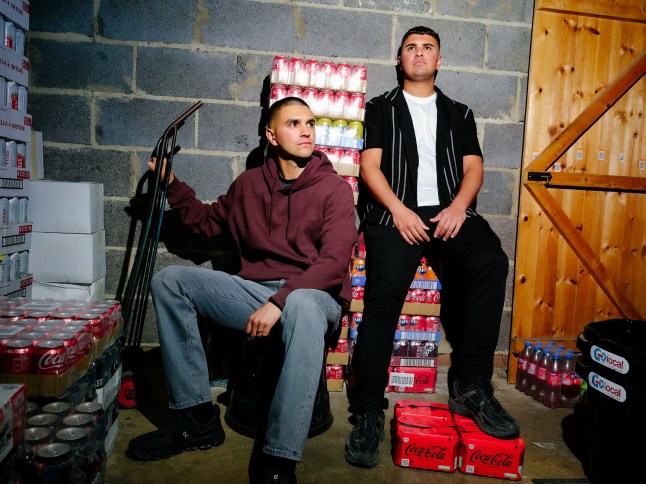
Keith, Bobby and Bay say Coca-Cola has been a staple in their stores from the very first days they opened their shutters.
As the drink company celebrates 125 years in Great Britain, they have recognised six corner shop bosses, including the three in this article, as heroes to their communities.
Each boss also gets to nominate a local cause in their area to receive a five-figure donation.
Dusan Stojankic, Vice President and General Manager of Great Britain & Ireland at Coca-Cola said: ‘We’re proud to be celebrating 125 years since Coca-Cola was first served in Great Britain, and with 97% of our products sold here manufactured and bottled here, we’re invested in local communities.’
Get in touch with our news team by emailing us at webnews@metro.co.uk.
For more stories like this, check our news page.

